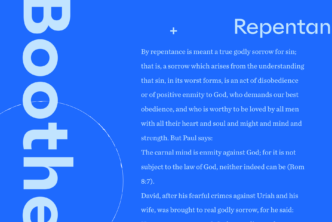One of the most fascinating developments to follow through the Bible’s storyline is the concept of God dwelling with his people. God, the creator of all that exists, gradually reveals his desire to be present and active with those who belong to him. Tracing this progressive revelation is cause for great worship and wondrous hope.
After God rescued the Israelites from Egypt, God commanded them to make him “a sanctuary, that I may dwell in their midst” (Exod. 25:8). God had given the Israelites new hope and identity by rescuing them from the Egyptians. Now, he revealed his intention to have his presence continually with them. Through both this “tabernacle” and the temple that followed, God lived among his people. How incredible it must have felt to have the Lord of all creation make his home with them!
Yet the tabernacle and temple were only a glimpse of God’s ultimate plan to draw near to his people. Isaiah prophesied about a coming “Emmanuel” (Isa. 7:14), a name which means “God with us.” In Jesus, God entered into his creation in a very tangible way. That the temple system allowed for the high priest to enter into God’s presence was astounding, but Jesus made God’s presence readily available to all. He did this in two ways.
First, Jesus revealed the character of God. He demonstrated the love, mercy, righteousness, and holiness of God in ways that we could easily see and understand. Following God was no longer merely about obeying commands, but about following the one who lived them out perfectly.
Second, Jesus made a way for sinners to come into God’s presence by providing a “once and for all,” perfect sacrifice for sin. The writer of Hebrews tells us that Christians “have confidence to enter the holy places by the blood of Jesus” (Heb. 10:19). Through Jesus’ death and resurrection, God both dwelt with us and provided a way for us to dwell with him.
With the coming of the Holy Spirit at Pentecost, we get another example of God’s desire to dwell with his people. Through the Holy Spirit, God intends to be ever present and active with his people, both as individuals and as the church (1 Cor. 6:19, 1 Cor. 3:16). In words only fully grasped with an understanding of the Israelite temple system, Paul asks the Corinthian church, “Do you not know that you are God’s temple and that God’s Spirit dwells in you?” Just as God’s presence dwelt in the inner sanctuary of the physical temple, so now his presence dwells with his church and with individual believers.
Yet the final piece in God’s plan to dwell with his people is still yet to come. In John’s vision of the new creation, he sees “the holy city, new Jerusalem, coming down out of heaven from God” (Rev. 21:2). John then hears “a loud voice from the throne saying, ‘Behold, the dwelling place of God is with man. He will dwell with them, and they will be his people, and God himself will be with them as their God’” (Rev. 21:3). As we’ve seen time and again, God enters into our world, moves into our neighborhood. This passage does not read, “. . . the dwelling place of man is with God,” but rather “. . . the dwelling place of God is with man.” God enters into our world, our realm, our lives. He is the great initiator. And apart from his continual movement towards us, we are hopeless.
What a joy that our hope is not in “us with God,” but in “God with us.” Emmanuel.
* * *
For more insight on Scripture and the Incarnation, browse resources at Logos.com.
This post by Faithlife employee Derek Fekkes originally appeared 2014.





